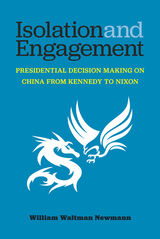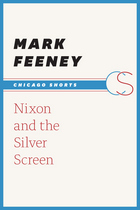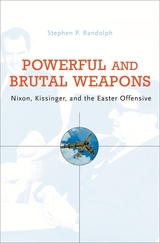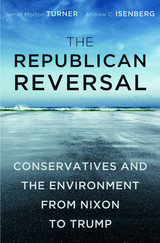
Will Guzmán delves into Nixon's lifelong struggle against Jim Crow. Linking Nixon's activism to his independence from the white economy, support from the NAACP, and the man's own indefatigable courage, Guzmán also sheds light on Nixon's presence in symbolic and literal borderlands--as an educated professional in a time when few went to college, as an African American who made waves when most feared violent reprisal, and as someone living on the mythical American frontier as well as an international boundary.
A powerful addition to the literature on African Americans in the Southwest, Civil Rights in the Texas Borderlands explores seldom-studied corners of the Black past and the civil rights movement.




As America confronts an unpredictable war in Iraq, Stephen Randolph returns to an earlier conflict that severely tested our civilian and military leaders. In 1972, America sought to withdraw from Vietnam with its credibility intact. As diplomatic negotiations were pursued in Paris, President Richard Nixon and National Security Advisor Henry Kissinger hoped that gains on the battlefield would strengthen their position at the negotiating table--working against the relentless deadline of a presidential election year.
In retaliation for a major North Vietnamese offensive breaking over the Easter holidays, the President launched the all-out air campaign known as Linebacker--overriding his Secretary of Defense and clashing with the theater commander in whom he had lost all confidence. He intended to destroy the enemy with the full force of America's "powerful and brutal weapons" and thus shape the endgame of the war. Randolph's narrative, based not only on the Nixon White House tapes and newly declassified materials from the National Security Council, the Pentagon, and the White House but also on never before used North Vietnamese sources, re-creates how North Vietnam planned and fought this battle from Hanoi and how the U.S. planned and fought it from Washington.
Randolph's intimate chronicle of Nixon's performance as commander-in-chief gains us unprecedented access to how strategic assessments were made, transmitted through the field of command, and played out in combat and at the negotiating table. It is a compelling story about America's military decision-making in conflicts with nontraditional belligerents that speaks provocatively to our own time.

Not long ago, Republicans could take pride in their party’s tradition of environmental leadership. In the late 1960s and early 1970s, the GOP helped to create the Environmental Protection Agency, extend the Clean Air Act, and protect endangered species. Today, as Republicans denounce climate change as a “hoax” and seek to dismantle the environmental regulatory state they worked to build, we are left to wonder: What happened?
In The Republican Reversal, James Morton Turner and Andrew C. Isenberg show that the party’s transformation began in the late 1970s, with the emergence of a new alliance of pro-business, libertarian, and anti-federalist voters. This coalition came about through a concerted effort by politicians and business leaders, abetted by intellectuals and policy experts, to link the commercial interests of big corporate donors with states’-rights activism and Main Street regulatory distrust. Fiscal conservatives embraced cost-benefit analysis to counter earlier models of environmental policy making, and business tycoons funded think tanks to denounce federal environmental regulation as economically harmful, constitutionally suspect, and unchristian, thereby appealing to evangelical views of man’s God-given dominion of the Earth.
As Turner and Isenberg make clear, the conservative abdication of environmental concern stands out as one of the most profound turnabouts in modern American political history, critical to our understanding of the GOP’s modern success. The Republican reversal on the environment is emblematic of an unwavering faith in the market, skepticism of scientific and technocratic elites, and belief in American exceptionalism that have become the party’s distinguishing characteristics.
READERS
Browse our collection.
PUBLISHERS
See BiblioVault's publisher services.
STUDENT SERVICES
Files for college accessibility offices.
UChicago Accessibility Resources
home | accessibility | search | about | contact us
BiblioVault ® 2001 - 2025
The University of Chicago Press









